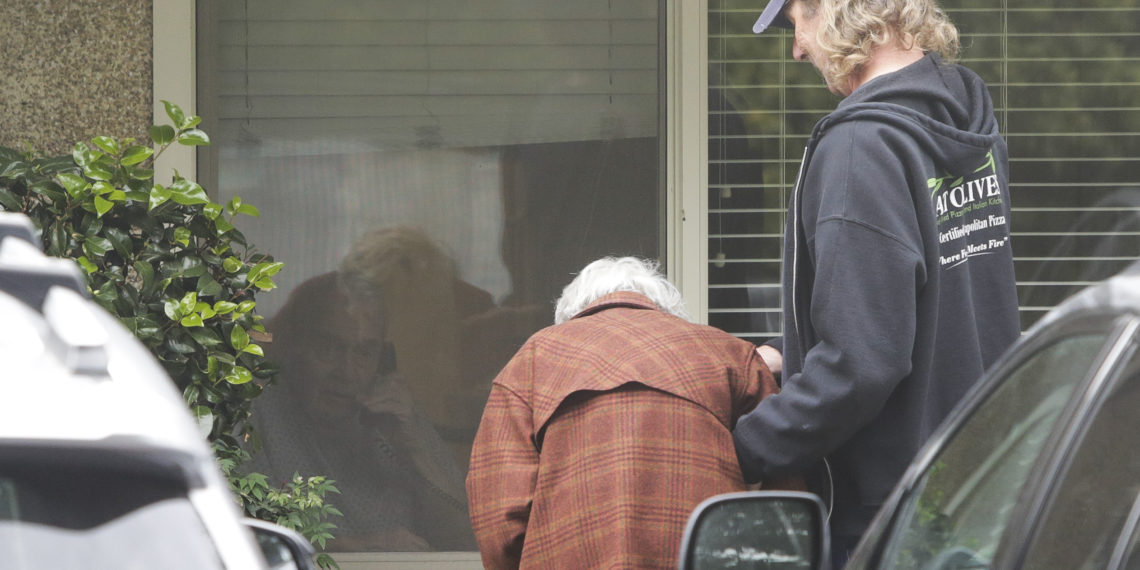The United States is facing a national emergency because of COVID-19, which has now reached pandemic proportions. Schools are closed, social gatherings are banned, and people are scared.
The virus’ exponential spread demands drastic measures to slow the advance and mitigate the consequences on our country and the world. One such action, social distancing, will slow the outbreak, reduce the infection rate of high-risk populations, and lessen the burden on health care systems and workers.
However, since social isolation and loneliness are determinants of health, social distancing comes at a cost. While we must all hunker down for the sake of stopping the virus, we should recognize and look to mitigate the future public health consequences for doing so.
Coronavirus and Loneliness
The effects of loneliness as it relates to COVID-19 is not an issue today since we all recognize the importance of fighting the pandemic and saving lives. But if social distancing and isolation continue over the next few months, which will most likely be the case, a new normal will set in while the sense of urgency might fade.
We may find ourselves in a situation where loneliness is on the rise as the purpose for why we are alone recedes from view. To prevent the next public health – and social – crisis as we are confronting the current one, we should think about how to reinforce community focus and belonging even as we venture alone.
Loneliness is a direct and significant public health concern among the elderly. It is associated with negative cardiovascular and mental health outcomes in adults and is also linked to health problems in children. Social isolation and loneliness were already public health concerns, even before corona hit our shores.
In a 2018 survey, about half of Americans reported “sometimes or always feeling alone (46 percent) or left out (47 percent).” A similar proportion (47 percent) said they did not “have meaningful in-person social interactions on a daily basis.” With corona causing us to avoid social contact, these rates will inevitably increase.
Toll of Social Isolation
I recently got a glimpse of how social isolation will set in in the months ahead. In an effort to escape a looming case of cabin fever, my wife and I went for a short walk. The streets in our neighborhood, which are usually friendly to the point where we can’t walk ten steps without sharing a moment with a neighbor, looked like the scene in a zombie movie. Empty and ominous, if we did see another person, each kept their distance and nodded suspiciously as if waiting for the other to attack. Our heartbeats were racing, not because of our pace, but rather out of fear of an unexpected viral ambush.
While most young and middle-aged adults can probably figure out how to get their social fix, social isolation will have a much greater effect on children and the elderly, as well as populations with potential comorbidities. Children must be kept alone since they are germ factories and can unwittingly harm others through exposure, and the elderly because they are at greater risk. I am sure all of us who have children and elderly parents can already see what may happen.
My youngest just asked me, “Daddy, will more people die from #coronavirus or from loneliness?” I am gutted. Out of the mouths of our children. 💔
— Michael Adam Latz 🇺🇦☮️ (@RavMABAY) March 22, 2020
For example, last week, my children joined throngs of other children across New York State who began online education. Sitting in different rooms of the house and still wearing their pajamas, my kids revealed a mixture of excitement and frustration. After not being able to see their friends or teachers – or anyone else for that matter – for a few days, they giggled and squealed, exhilarated to have the chance to connect to their classmates. Yet, being unfamiliar with ZOOM or online classroom conduct, they kept trying to speak or chat with friends whose faces kept popping in and out of view.
During one session, my 7-year-old daughter raised her hand for nearly 5 minutes to ask a question. The teacher did not see her since her video only showed intermittently. My daughter raised her hand simply to be ignored until the end of the session. I saw feelings of defeat on her face. I also saw her level of energy and excitement steadily decrease throughout the week.
If this is happening to children, I can only imagine the effects it will have on the elderly population, as people are advised not to visit elderly relatives or retirement homes for the sake of limiting exposure.
Feeling of Community
If we do not account for the effects of social isolation and loneliness now, we will have to deal with it later. The only option may be to “kick that can down the road,” given the greater urgency and importance of stopping the spread of COVID-19. Yet, we shouldn’t ignore future health concerns and cost increases for mental and physical healthcare that social isolation will ultimately cause.
One thing that we can all do now is to recognize that being alone and being lonely are not the same thing, even if they often go together. If we can find ways to create and maintain meaningful connections between people, even isolation can be a vehicle to curb loneliness.
This, however, entails that we learn to build what Austrian physician and psychiatrist Alfred Adler called our “social interest” – or “a feeling of community, an orientation to live cooperatively with others, and a lifestyle that values the common good above one’s own interests and desire.”
This will be difficult in today’s social and political environment, but it may be the only thing to save us – personally and as a country – from harm.
Disclaimer: The views and opinions expressed here are those of the author and do not necessarily reflect the editorial position of The Globe Post.






















